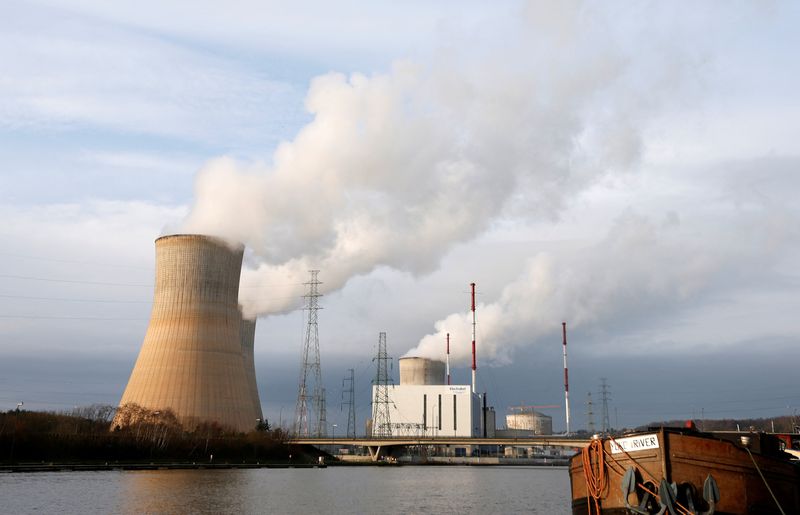BRUSSELS (Reuters) – Belgium should keep an open mind about extending the life-span of its remaining nuclear power plants, the country’s Green energy minister said on Monday, in a shift of position prompted by the conflict in Ukraine.
After months of debate, Belgium’s seven-party coalition government agreed a compromise in December that the country’s last nuclear power plant would close in 2025 provided it did not lead to energy supply shortages.
The Greens had said a 2003 law setting out a nuclear exit by 2025 must be respected, while the French-speaking liberals sought to extend the life of the two newest reactors.
That position has changed.
“Plan A is ready and feasible, but reassessment is needed with Ukraine,” Tinne Van der Straeten wrote on Twitter.
“We also need to look objectively at problems and obstacles related to an extension. The last two reactors represent 3% of our energy. We need a major breakthrough for 100% of our energy,” she added.
The invasion of Ukraine by Russia, Europe’s top gas supplier, has also prompted Germany to reasses its planned phase out of nuclear and coal facilities to cut reliance on Russian gas. Russia calls its campaign launched on Feb. 24 “a special military operation”.
Belgium, which has a total of seven reactors, has not confirmed how it would replace the nuclear plants’ capacity, although one option would have been to build more gas-fuelled power plants.
Belgium’s two newest nuclear plants are operated by French utility Engie and account for almost half of the country’s electricity production.
The government said it will decide in mid-March after guidance from electricity grid operator Elia on whether Belgium’s nuclear phase-out would threaten the energy supply.
The planned nuclear exit is to begin with the closure of one reactor on Oct. 1, 2022. Decommissioning, including the removal of radioactive materials and the demolition of buildings, is to be completed by 2045.
(Reporting by Marine Strauss @StraussMarine; Editing by Kate Abnett and Barbara Lewis)






















